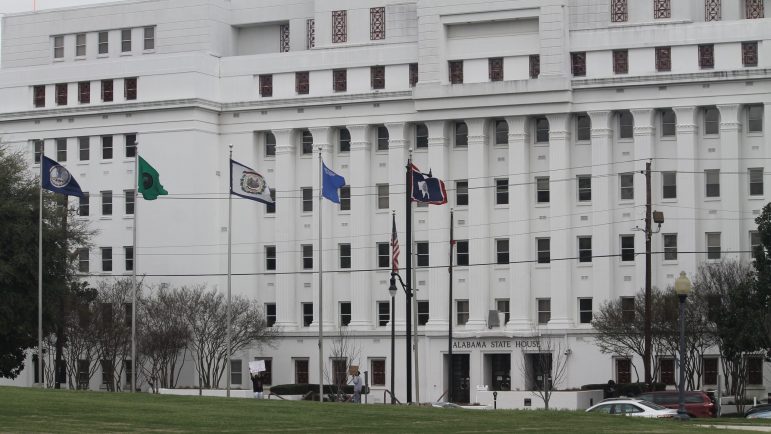In vitro fertilization dominated the conversation in Montgomery for another week in the wake of last month’s Alabama Supreme Court ruling that found frozen embryos are considered children. At least three fertility clinics paused some services after the decision, fearing legal repercussions.
On Wednesday, a few hundred doctors and IVF patients rallied at the statehouse to call on lawmakers to act to protect the procedure.
“These are not your typical activists. Probably a lot of them had never been to the statehouse,” said Todd Stacy, host of Capitol Journal on Alabama Public Television. “That really stuck out to me that these are ‘everyday’ folks who are suddenly paying attention to the legislature because they need a legislative fix.”
Stacy discussed the issue and other action in the Alabama legislature this week.
IVF bills on a fast track
Both chambers of the Alabama Legislature advanced bills with broad bipartisan support Thursday that would shield clinics from prosecution and civil lawsuits. Each bill now moves to the opposite chamber for debate.
Bill sponsor Republican Rep. Terri Collins said they are aiming to get the measure approved and to the governor on Wednesday. She described the legislation as a temporary fix while lawmakers weigh if additional action is needed.
“Everybody understands and agrees that this is a fix for the IVF issue singularly,” Todd said. “There may have to be some additional laws passed or some tweaking of existing laws to make sure this is taken care of over the long term.”
Democrats in the Alabama Senate had unsuccessfully tried to amend the bill to state that a human embryo outside a uterus can not be considered an unborn child or human being under state law.
Rep. Chris England, a Democrat from Tuscaloosa, said a long-term solution must address the 2018 constitutional amendment, which he said essentially established “personhood” for embryos.
School choice bill advances
The Alabama House on Tuesday advanced a school voucher-like program that could provide eligible families with state dollars to help pay for private school or home school expenses.
The proposal, championed by Gov. Kay Ivey and dubbed the CHOOSE Act, would allow eligible families to access up to $7,000 in state dollars for private school tuition, tutoring or transfer fees to move to another public school. Parents could also get up to $2,000 for home school expenses.
“This bill is not the kind of extreme school choice measures that you’ve seen in other states. It’s very measured. It’s incremental,” Stacy said
The first 500 slots would be reserved for families of students with disabilities. Eligibility would initially be limited to families earning up to 300% of the federal poverty level — which would be about $77,460 for a family of three. The income cap would go away in 2027, but lower-income families and families with students with disabilities would have priority for receiving funds.
The vote fell mostly along party lines with Democrats in opposition.
“They’re just opposed to any kind of public funds going to a private school,” Stacy said. “We’ll see what happens in the Senate if any negotiations or conversations can happen up there, but this is something the Republicans and the governor are committed to and so I expect it to pass.”
Gambling bill confusion
What happens if a committee holds a hearing but there’s nothing to discuss? The Senate Economic Development and Tourism Committee faced that conundrum on Wednesday when it held a meeting to debate a bill that would authorize a lottery, casinos and sports betting in Alabama. Yet there was no bill or public hearing on the agenda.
Advocates for and against gambling, along with the media, still showed up for the meeting which started 30 minutes late.
“What was happening is that behind the scenes they were drafting an alternative gambling bill that changes what passed from the House,” Stacy said. “Senators got really upset about that, saying ‘we can’t come in here and be expected to vote on something we’ve never seen.’”
Stacy said the bill’s Senate sponsor, Republican Sen. Greg Albritten, apologized for the mishap. The committee ultimately “carried the bill over” which means it can come back later in the session.
“Not exactly progress for the gambling bill, but I do think the Senate is going to change what the House passed,” Stacy said.
Includes reporting from the Associated Press

